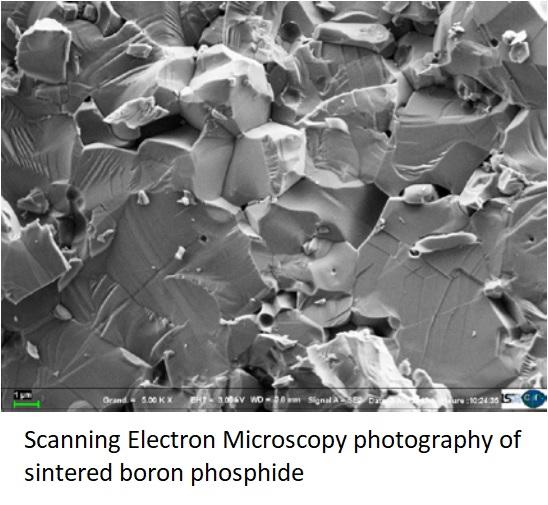Internationale Partnersuche
Innovation & Technologie Angebot
Innovative and environment-friendly synthesis of polycrystalline boron phosphide
Country of Origin: France
Reference Number: TOFR20171009003
Publication Date: 2 March 2018
Summary
A French Technology Transfer Office (TTO) has developed a new innovative methods of synthesis of boron phosphide using two processes. These two processes enable to synthesize nanopowders with high purity (>97%), from readily available and non-toxic reagents. The French TTO is seeking for licence agreement, technical cooperation agreement or research cooperation agreement.
Description
The French Technology Transfer Office (TTO) is acting on behalf of an established public laboratory of a Paris region university. The later has developed two innovative and scalable synthesis processes of boron phosphide, which don't need any toxic regaent and is less energy consuming.
* Market challenges
Boron phosphides can be used in automotive, mechanical engineering and mining as cutting tools, construction part or wear resistant coatings. Boron phosphides (BP and B12P2) are characterized by high hardness (Hv > 30GPa), low density, high thermal conductivity and a high thermal and chemical stability (up to 1500K in air). However, these promising two materials are not yet industrially used because of the lack of mass production method.
*State of the art :
Currently polycrystalline boron phosphides powders are traditionally synthesized by slow processes requiring toxic and aggressive reagents and high energy. Indeed, the direct reaction between boron and phosphorus is performed in sealed silica tubes under phophorus pressure and heating (>1400°K) during several hours. Besides, BP powder is prepared from boron using a metallic sodium as a reductant. FInally, Boron phosphide crystals are obtained using crystallization using metal solutions or chemical vapour reaction using sulphur.
* Proposed technology :
Two new approaches of producing boron phosphide powders have been discovered and patented.
These 2 processes, SHS (Self-Propagating High-Temperature Synthesis) and mecanochemistry, enable to synthesize either BP or B12P2 nanopowders with high purity(>97%), from readily available and non-toxic reagents.
The potential applications are :
- Wear parts
- Wear-resistant coating
- Cutting tools
* Proposed partnership:
- license agreement for exclusive or non-exclusive rights in specific applications, or
- research cooperation agreement to develop innovative solutions on the basis of the actual technology, or
- technical cooperation agreement whereby resources of the proposer and the client would be pooled and skills would be shared to further the development of the industrial potential of the technology.

Advantages and Innovations
These new fast, safe, reproducible and scalable synthesis now enable the development of a wide use of boron phosphides without toxic and aggressive reagents and high energy which is the state of the art.
The competitive advantages are:
- Rapid synthesis : fast thermal initiation (<10sec) and combustion (<30sec) for a 10g-portion of the raw material using SHS process, fast crushing (<10min) for a 10g-portion of the raw material using mecanochemistry.
- Nontoxic and available low-cost reagents
- High reproducibility : checked on purity level, lattice parameter and size.
- High purity of the synthetized product (>97%)
Stage Of Development
Prototype available for demonstration
Stage Of Development Comment
The syntheses are efficient at laboratory scale : the rate of return for BP synthesis is 35% using SHS process and 75% using mecanochemistry, the one for B12P2 is 76% using SHS process and 84% using mecanochemistry.
The industrial upscaling is proven. The laboratory is already able to make ongoing basic sintering of boron phosphide powders.
Requested partner
Considering the following but not limited potential applications :
- wear parts,
- wear-resistant coatings,
- cutting tools,
The partner sought could be a company or an R&D institution interested by :
- a license agreement for exclusive or non-exclusive rights in the above-listed applications with companies or subcontractors working on boron material by sintering or mechanical machining, or
- a research cooperation agreement to develop innovative solutions on the basis of the actual technology with companies or R&D institutions working on boron powder synthesis using mecanochemistry, or
- a technical cooperation agreement with companies workining on boron material synthesis or machining, whereby resources of the proposer and the client would be pooled and skills would be shared to further the development of the industrial potential of the technology.
Cooperation offer ist closed for requests

